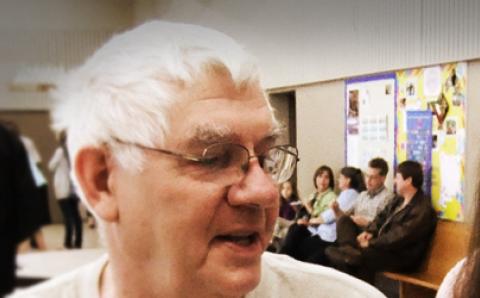Sphere Sovereignty: Engaging All Square Inches of Life in the Right Way
by Doug Vande Griend
How would you react if your local church council told you
- which political candidates to vote for in an upcoming election?
- to tell your legislators to vote against House Bill 2642 and for Senate Bill 954?
- not to use Roundup® weed killer at home because doing so mistreats God’s creation?
- that your child may play baseball but not football because football causes injuries and encourages aggressiveness?
Or what if the school board told you not to exceed 200 cows on your dairy farm to avoid damaging the ecosystem and lobbied the state legislature to enact that limit into law?
Or what if your city’s mayor told you to become Roman Catholic because it was the only true church?
Or what if your employer told you to give your children two years of piano lessons because of their musical gifts?
Confronted with any of the above scenarios, I would ask two questions—hopefully with grace: “What makes you an authority on this?” and “What business is this of yours anyway?” If you understand why I’d ask those questions, you have a sense for an oddly named social doctrine called sphere sovereignty.
The core idea within sphere sovereignty is not exclusively Reformed, although the phrase did come to us from Abraham Kuyper. Sphere sovereignty has to do with differentiation in society, something James Skillen talks about in his book The Scattered Voice: Christians at Odds in the Public Square. It says the societal structures we call government, family, business, church (as institution), school, individual, and so on, are differentiated institutional spheres within society.
Differentiated Spheres
As history progressed, greater societal differentiation developed, each differentiated sphere deriving from its unique character and purpose (1) an area of authority or competency, that is, the scope of concern where it claims the right to “tell others what to do”; (2) an area of responsibility or jurisdiction, that is, the duty to act, particularly if something amiss happens in its sphere; and (3) governance structure, that is, particular protocols for how an institution within the sphere applies its authority or competence to the area of its jurisdiction.
For example, if a pastor spouts heresy from the pulpit, the sphere of the institutional church, acting through its governance structure (in the CRC, the council), has the authority and responsibility to respond. The school and government should not.
In reality, the authority or responsibility of multiple spheres often intersect. For example, had that heretical pastor also seriously abused a parishioner, action might be expected from
- the (institutional) church, which might remove the pastor;
- the government, which might criminally prosecute the pastor;
- the abused individual, who might consider civil action; and
- the family of the victim (spouse, parents, children), who might support and advise.
Individual people always engage in multiple spheres. A local judge (government sphere) may have a husband and children (family sphere) and sometimes volunteer in her child’s classroom (school sphere). Within those spheres, her responsibility varies. She would wield great power as a sentencing judge, but only have partnership authority with her husband as to household matters. And when volunteering as an aide to the teacher of her child’s classroom, she’d be appropriately subordinate.
Violations of sphere sovereignty boundaries result in varying degrees of harm. If your child’s teacher directs your daughter to brush her teeth four times a day, not much harm would result. But when government and institutional church joined forces to ignore their sphere boundaries in the 16th century, many Christians, including Guido de Bres, were put to death. No doubt de Bres opposed the institutional church demanding doctrinal adherence by threat of death and the government’s requirement that all be Roman Catholic.
The United States’ founding fathers thought a lot about sphere sovereignty, even if they never used the phrase. Their special focus was defining boundaries for the state (government) and creating a structure to execute government’s authority (the Constitution). By properly bounding the government, they also allowed for other spheres to properly exist, thereby creating political pluralism.
Institutional Church
The CRC needs to consider its own sphere boundaries as an institutional church. We may all agree that the organic church (all believers) is called to engage every square inch of God’s creation, but that doesn’t mean each institutional church must—or should.
My local church council shouldn’t tell me which political candidates to vote for. Nor should it set a limit on my dairy herd or demand I not use Roundup®. Nor should classis or synod (derived from local councils) tell us who is right and who is wrong about climate change. Nor should a CRC agency (ultimately derived from local councils as well) tell the government that the CRC opposes the House Farm Bill and supports the Senate version. The CRC, an institutional church, should stop acting beyond its sphere boundaries.
But who says so? you might ask. How can we know the CRC’s boundaries are so limited?
In three ways. The first is by checking for competency. Delegates to classis and synod aren’t chosen for competency in law, political theory, economics, climate physics, or dairying. Half of synod’s delegates have degrees in theology and experience in pastoring churches. These are good degrees and valuable experiences, but they create competency in only some square inches of life.
Second is to check your general sense for jurisdiction. Should we not feel invaded, for example, if our denomination decides which version of the Farm Bill should pass and lobbies for that in our institutional church’s name? We are responsible to engage political matters, individually and working with others in parties and advocacy groups, but which of us have given our political proxy to the denomination? Do we want visitors to our churches to have to review denominationally issued political positions before deciding to become members?
Third is to check our own longstanding rules. Our Church Order says, in Article 26, “The assemblies of the church are the council, the classis, and the synod,” and then in Article 28(a), “These assemblies shall transact ecclesiastical matters only, and shall deal with them in an ecclesiastical manner.” I suppose Article 28(a) could have been a bit more detailed, but until 25 years or so ago, who in the CRC would have dreamt they’d be competing with their denomination’s lobbying on political issues?
People instinctively want their perspectives, whatever the topic, to prevail over those of others. But that want can be sinful. An appropriate sense of humility should restrain us from trying to “lord it over” others (Church Order, Art. 85). May we pray for that sense of humility.
The Ecology of Kingdom Witness
by Kathy Vandergrift
The distinction between the church as institute and the church as organism is a useful gift from the legacy of Abraham Kuyper, a giant in Reformed social thought and a former prime minister of the Netherlands. The church as organism refers to the body of Christ, which lives out its faith every day, everywhere, and in every way. The church as institute refers to organized churches—defined by doctrines, liturgies, church programs, and church rules, from local churches to global denominations.
While the organic church is called to claim “every square inch for Christ,” to use another favorite Kuyperian concept, the institutional church has a more specific role in the larger kingdom vision. The boundaries of that role come under question when societal issues need attention. May the instituted church speak out on societal issues, especially contentious ones? Should it? If so, how? And when? Is this activity only for individuals and groups within the organic church?
There is no easy rule to follow. The distinction between these two aspects of Christ’s one church is helpful when it is used to advance renewal of God’s world. It can also be misused to stifle Christian witness in our society.
In my experience, misuse results from misinterpretation, such as making an “either-or” choice between the organic and institutional church, or ignoring an equal emphasis on the interdependence of the two. In addition, our context is different; if Kuyper were alive today, I suspect he would formulate yet another version of this “square inch” concept, which evolved along with his highly effective social movement.
Preventing misuse and strengthening kingdom connections are two keys to resolving the stalemates that often develop when this concept is used to block emerging social justice initiatives.
“Both-and” instead of “either-or.” In Kuyper’s day, gatherings within the institutional church, such as Bible studies, men’s societies, young people’s meetings, and even sermons included research and robust deliberation about how Christians should engage and shape their society. James Bratt’s biography of Kuyper, entitled Abraham Kuyper: Modern Calvinist, Christian Democrat, tells an inspiring story of Christian witness in society. By comparison, engagement with societal issues in the Christian Reformed Church in North America is anemic.
Discernment is a shared responsibility of the institutional and organic church. When the distinction between them is used to shut down discussion of societal issues in the gathered church, it contributes to the low capacity of members to bring a well-informed Reformed witness in public affairs. Making space for robust discussion about what the Bible means when it calls us to do justice and care for creation is a major need in the CRC today.
Interdependence. The institutional church exists to enable the organic church; they are interdependent. Current applications of Kuyper’s concept in the CRC tend to isolate the church behind a protective wall. One motive is to keep it pure. Another may be withdrawal from society. Both hinder an effective witness by the denomination in today’s context.
When local congregations welcome and help migrant workers who are suffering harm from unjust immigration laws, the church needs to act in solidarity with its members to seek justice and change in the laws. If Christian Reformed churches preach about care for creation as a biblical calling, credibility requires also speaking about societal practices that are causing the most harm to God’s world. The church speaks differently than scientists, farmers, migrants, or politicians; it adds a unique voice to public discussions that shape our society.
Silence speaks loudly. Silence is not neutral. The institutional church cannot avoid being part of society. Too often in history, silence by the church became complicity with unjust social structures and practices. While the church no longer has a privileged position in society, a fact that limits the influence of church proclamations, it can have a positive impact by speaking with credibility from a servant position out of concern for the common good.
To speak publicly or not to speak: both are choices. Making wise choices requires broad engagement in a process of discernment that draws out the strengths and skills of church institute and organism.
Stronger kingdom connections. In today’s language, Kuyper might have used the concept of the social ecology of the kingdom. The emphasis in ecology is on connectivity between parts that have different functions and roles within a system that recognizes its interdependence.
Note the focus on joints in the description of the body of Christ in Ephesians 4:15. A networked church makes connections across organizational boundaries, enabling both the gathered and scattered church to engage culture within a shared context. Effective Christian witness today requires a stronger focus on connectivity rather than on dissecting the body of Christ into its parts. We can only imagine, for example, how Kuyper would use the potential of today’s social media to mobilize people for action.
Fear of becoming enmeshed in partisan politics is a legitimate caution. Churches have, rightly and wrongly, been labeled “liberals at prayer” or “the Christian Right.” Political partisanship, right or left, damages the credibility of Christian public witness. Silence can also be partisan, and it can damage our public witness. A greater danger today, however, is that political illiteracy leaves church members vulnerable to the kind of political demagoguery that is eroding democracy in Canada and the United States.
Making space in the gathered church for deliberation and discernment is important in our context for two reasons. The church is one place where deeper values intersect with current trends, in contrast to the short-term pragmatism of most public discussion. The church also brings together voices from different segments of society who are increasingly polarized as the gap between the interests of elites and the rest of society widens in North America.
Worship and just social relations. Throughout Scripture there is a strong link between worship and just social relations. The prophets warned worshipers that if they wanted God to accept their praise they should leave the temple, repair social ills, and then come back. One of the few times Jesus showed anger was in his response to exploitative trade just outside the sanctuary, and he rebuked the Pharisees for inconsistency between practice and worship words.
True worship and integrity unite the gathered and scattered church in the pursuit of just social relationships and creation care in the context within which we worship.
About the Authors
Kathy Vandergrift teaches public ethics to university students and advocates for the rights of children.
0
0
1
28
164
CRC Product Services
1
1
191
14.0Normal
0false
false
falseEN-US
JA
X-NONE/* Style Definitions */
table.MsoNormalTable
{mso-style-name:"Table Normal";
mso-tstyle-rowband-size:0;
mso-tstyle-colband-size:0;
mso-style-noshow:yes;
mso-style-priority:99;
mso-style-parent:"";
mso-padding-alt:0in 5.4pt 0in 5.4pt;
mso-para-margin:0in;
mso-para-margin-bottom:.0001pt;
mso-pagination:widow-orphan;
font-size:10.0pt;
font-family:"Times New Roman";}Doug Vande Griend is engaged in the private practice of law and has done work in various capacities for a number of nonprofit organizations. He is a member of Sunnyslope CRC in Salem, Oregon.









